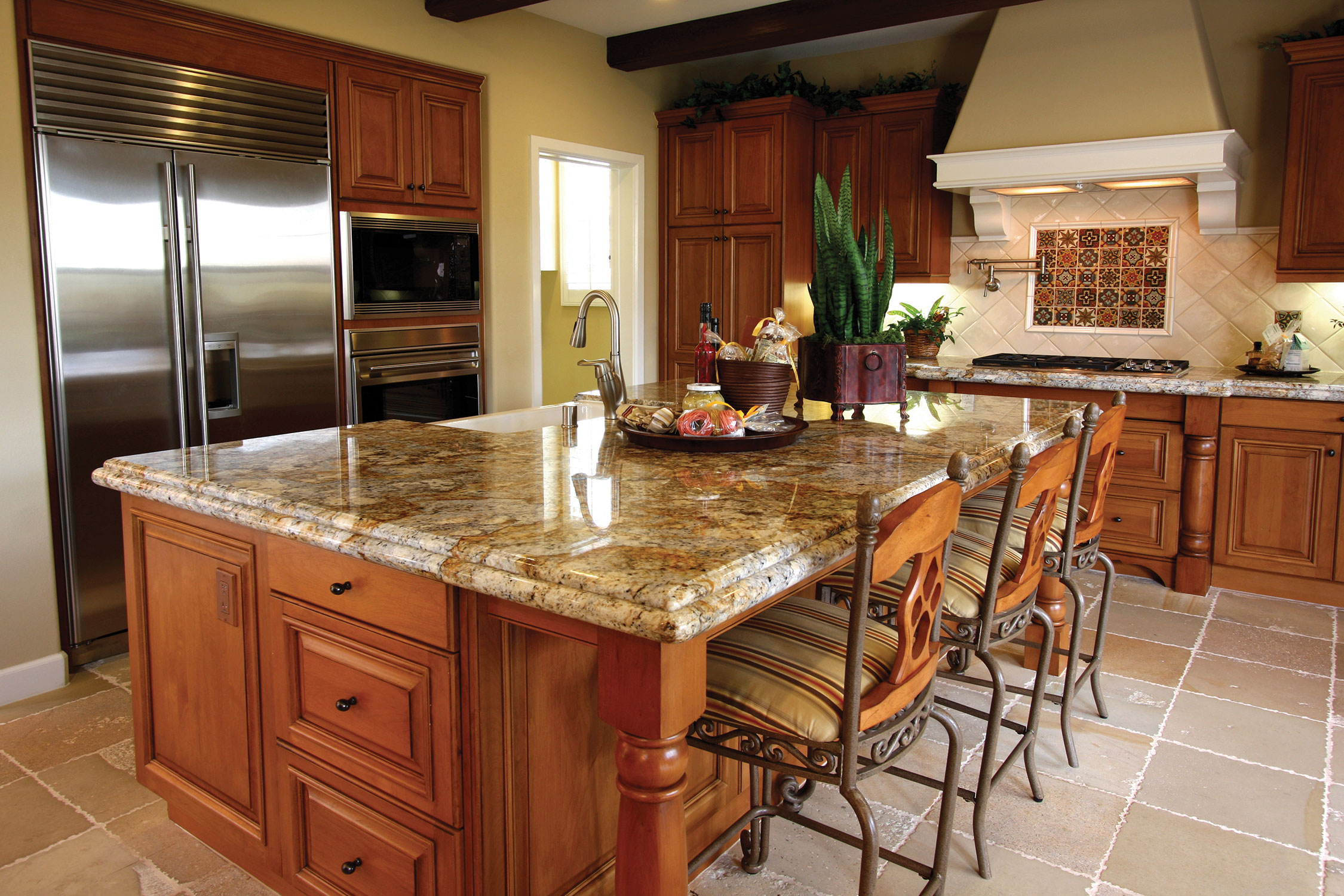 Simple steps to maintain natural stone
Simple steps to maintain natural stone
(Family Features) Natural stone adds elegance and style to any home. With a nearly endless array of colors, textures and designs, it’s easy to create a one-of-a-kind look for your kitchen or bath. However, without proper care, that carefully selected natural stone may quickly start to show wear and tear.
Not only does natural stone lend a beautifully sophisticated aesthetic, it’s generally regarded as a practical choice because it’s more durable than many other materials. Its resistance to scratches also makes it a more sanitary choice.
However, granite, marble, travertine and other natural-stone and quartz surfaces do require proper care and attention to maintain that luxurious finish. Keep your natural stone in top condition with these tips from the experts at Granite Gold.
Clean often. Even if your surface appears clean, the safest bet is to clean it after every meal preparation. The most miniscule particle could have a detrimental effect on your natural stone. Avoid common cleaners and abrasives. They can break down the protective seal and you could be faced with costly repair or replacement. Also, give special attention to the scrubbing pad you use; many are too abrasive for expensive stone counters and leave unsightly scratches. Leave the sponges and pads you use for pots and pans in the sink and instead rely on scrubbing pads designed specifically for natural stone or look for “non-scratch” on the packaging.
Seal frequently. You cannot over-seal natural stone surfaces. Frequently sealing granite countertops and all other natural stone surfaces maintains maximum surface protection, penetrating stone surfaces to provide superior, long-lasting resistance to staining, etching and soil buildup. The protective seal is a critical component of natural stone because it prevents harmful substances such as acidic coffee, juice or wine from staining and etching the surface.
If you’re not sure whether it’s time to reseal, it’s easy to test. Pour water (about 3 inches in diameter) on the surface and let it sit for 30 minutes. Be sure to do this in several locations, since the integrity of the seal could vary from one area to another. If the water beads, then the stone remains sealed. However, if the stone is penetrated – signified by a dark mark or ring created by the water – it is time to reseal. Be sure to check closely for etching and stains, as you’ll want to fix these issues before the sealant is applied.
Polish regularly. Polishing stone provides two great benefits. First, polishing after cleaning will bring out the stone’s natural beauty. Second, it will reinforce the protective seal and provide ongoing protection against water spots and fingerprints. One time-saving but effective solution after sealing is Granite Gold Clean & Shine, which provides the cleaning power of the line’s Daily Cleaner and the luster from the Polish in one easy-to-use formula.
You can find the products nationwide at Walmart, Lowe’s, Home Depot and Bed Bath & Beyond; check the product locator at GraniteGold.com.
